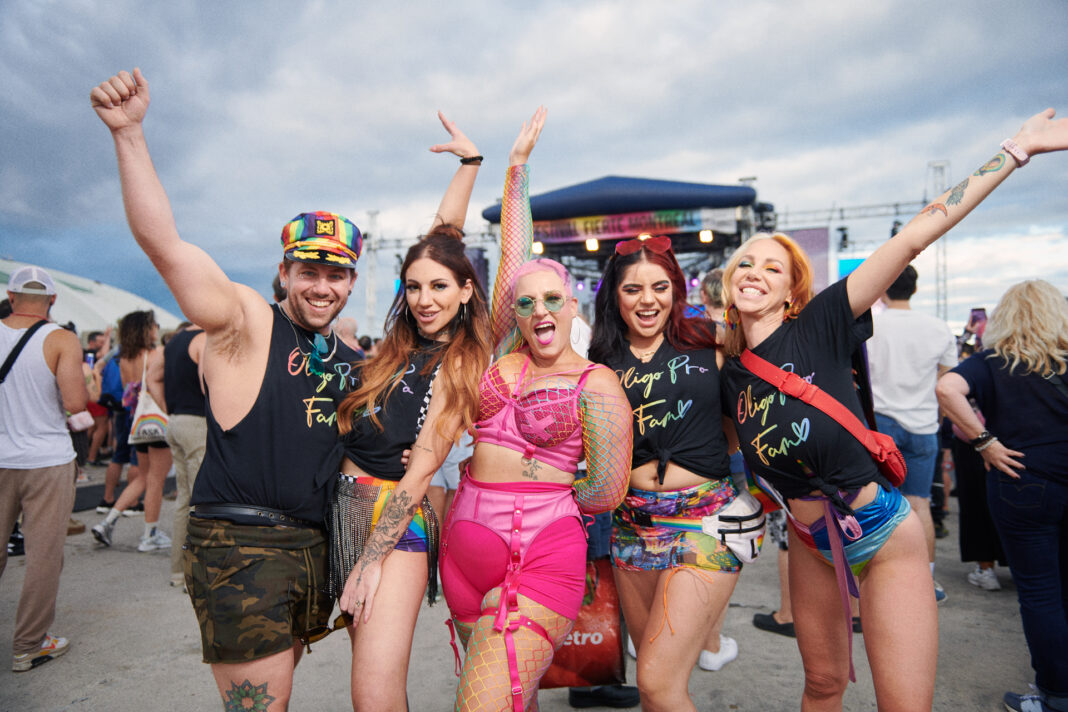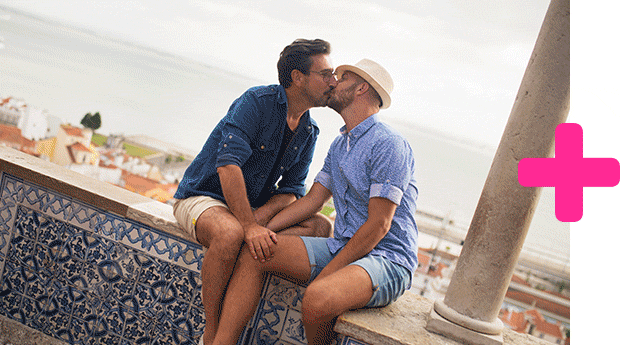While some Pride festivals establish a template and stick to it year after year, Fierté Montréal (aka Montreal Pride) has not followed any such script. Blame it on the fierce creative impulses of North America’s largest French-speaking (though practically bilingual) metropolis. Montreal has had shifting venues, a nighttime parade and, in 2022, no parade at all, due to organizational difficulties.
In fact, Festival Fierté Montréal is, by North American Pride standards, a relatively young organization. It was only founded in 2007; for a long time, a now-defunct cultural festival, Divers/Cité, was the dominant LGBTQ2S+ event in Montreal.
But this year’s Fierté Montréal, which runs from August 1 to August 11, seems ready to make a statement that Fierté is as robust, exciting, creative and inclusive as the city itself.
“Our programming is extremely generous, extremely diverse. There’s really a bit of everything for everybody, which is a crazy balancing act, trying to get everybody represented. But I think we’re doing a pretty good job at that,” says Chris Ngabonziza, Fierté’s director of programming and artistic development.
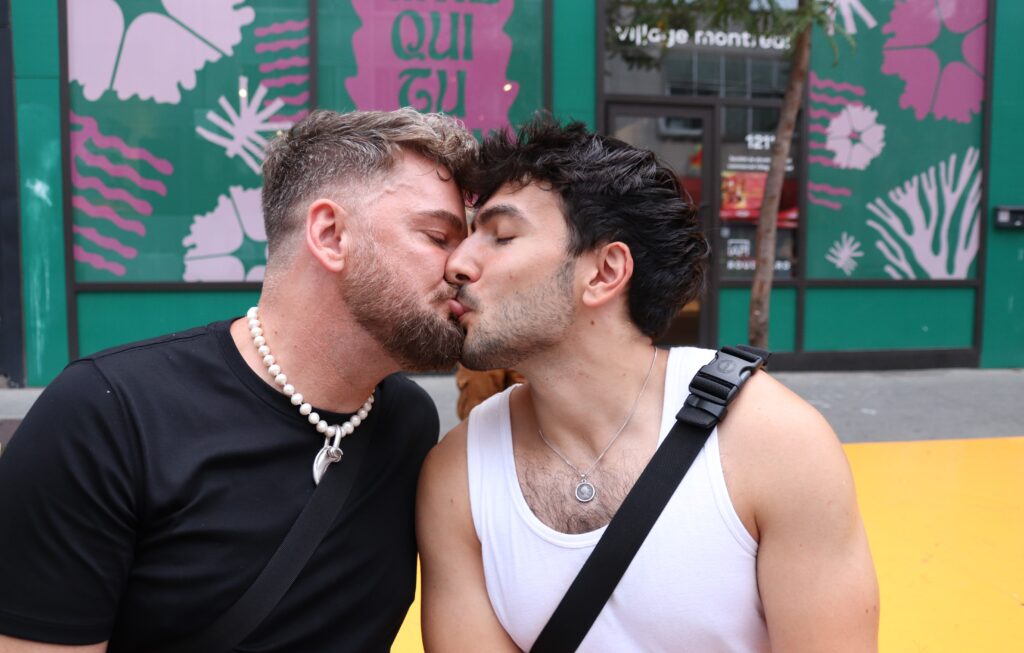
What does that mean for visitors?
The official 2024 festival will be organized around three hubs, and roughly divided into a first weekend and a second weekend:
- The Urban hub is located in downtown’s Quartier des spectacles, the district around the gigantic Place des Arts complex; it’s the first time Fierté has used these venues. This hub will be mostly active from August 1 to 4—the first weekend of the festival. It will feature free shows on big stages by various communities under the rainbow banner, including drag artists of Black, African and Caribbean descent; a LatinX evening; a Bollywood event; queer Asian communities showcasing martial arts; and an evening, called FeminX, dedicated to women of sexual and gender diversity, featuring Montréal’s legendary Misstress Barbara. Also included in the Urban hub are club nights both weekends at Club Soda (1225 Boul. Saint-Laurent, Montréal) and SAT’s Satosphère (1201 Boul. Saint-Laurent, Montreal), and a comedy night on August 9 at Le Belmont (4483 Boul. Saint-Laurent, Montreal).
- The Olympic hub is in Olympic Park Esplanade (4141 Av. Pierre-de Coubertin, Montreal) in the city’s east end. This hub will be active from August 8 to 11—the second weekend of the festival. Bigger name artists will perform here including Québécois LGBTQ2S+ allies Marjo, Mitsou, Elisapie, Sarahmée and Pierre Kwenders who will share the stage with emerging LGBTQ2S+ artists. On August 11, the last day of the festival, Olympic Park Esplanade will transform into the city’s largest open-air dancefloor for the Mega T-Dance, featuring local and international DJs such as DJ Mohammad and Kitty Amor.
- The Village hub is in Montreal’s Gay Village, along Rue Sainte-Catherine, roughly from Rue Saint Hubert to Avenue De Lorimier. Pedestrian-focused programming will take place on Sainte-Catherine, a collaboration between Fierté and the Village’s business improvement district. The Village’s bars and clubs, of course, will be hosting their own events. During Community Days, on August 9 and 10, attendees can peruse booths from local organizations and community groups, businesses and sociocultural and sports clubs that have a connection to the LGBTQ2S+ community.
There’s also the parade, which will head down Boulevard René-Lévesque at 1pm on August 11, the last day of the festival. This year’s theme is “We Are the Rainbow,” and the grand marshals will be Sasha Colby of RuPaul’s Drag Race fame and Ouissem Belgacem, a Franco-Tunisian footballer and author who campaigns to raise awareness about homophobia in sports.
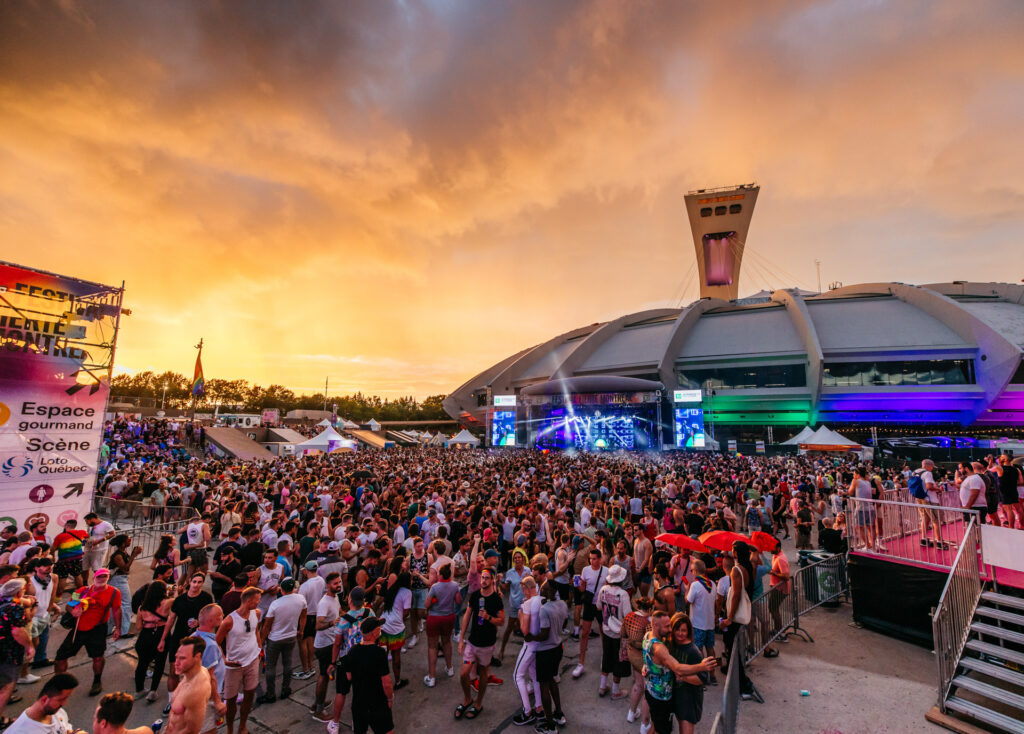
Sounds like there’s a lot to keep track of. How do I navigate it all?
Ngabonziza says there will be a program guide and colour-coded signage to help visitors find all that’s on offer. Even though events are spread around downtown, the distances between them are not big and it will be easy to get from event to event by transit. Hosting performances and parties in the Quartier des spectacles, which is where so many of Montreal’s big mainstream events take place, will make them more “discoverable” to different audiences, says Ngabonziza. “We think people are actually going to find it extremely dynamic and fun to be able to move around the city.”
What’s the vision behind Festival Fierté Montréal this year?
This is Ngabonziza’s second year rebuilding the festival post-pandemic. To help the organization punch above its weight, he’s entered into a lot of collaborations with artists, collectives, promoters and businesses to provide a variety of experiences. “Why create new dance parties, for example, when we can partner with other collaborators in the queer scene who already have a following?” While representing the many subcultures within the community has been a priority, he’s also been emphasizing “classics” like the parade and the huge tea dance on the final Sunday. “As much as we are reinventing ourselves, we’re also bringing back some of the familiar stuff.”
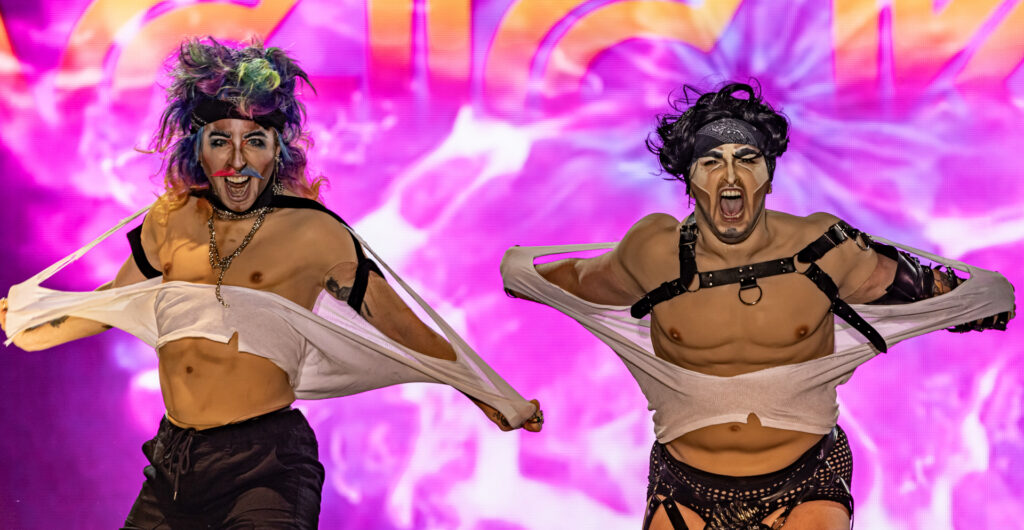
What else is happening, unofficially?
Meanwhile, there will be “unofficial” ticketed parties and events at clubs and bars. One of the biggest, catering to primarily gay guys who love circuit music, is the Love Festival, which hosts four parties from August 8 to 11. The largest of these is probably District Inferno, held at the MTELUS theatre (59 Rue Sainte Catherine E, Montreal) on August 10.
Perhaps as a compliment to Pride, perhaps as a bit of competition, the mainstream-but-queer-friendly ticketed music festival Osheaga takes place in Montreal’s Parc Jean-Drapeau from August 2 to 4.
Hankering more Prides? Read our guide to this summer’s biggest and best Pride festivals.

